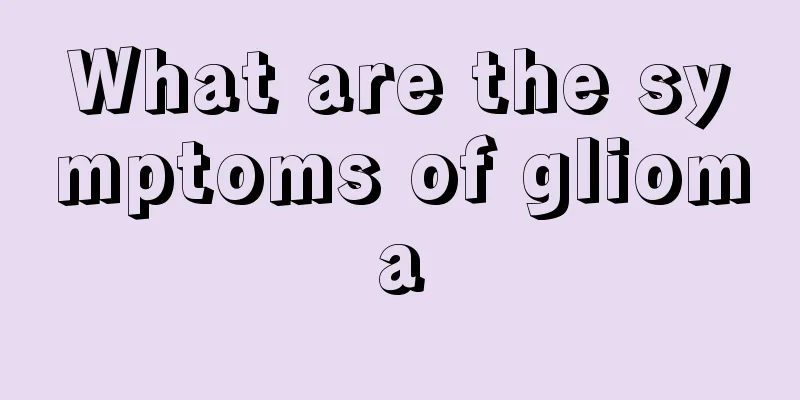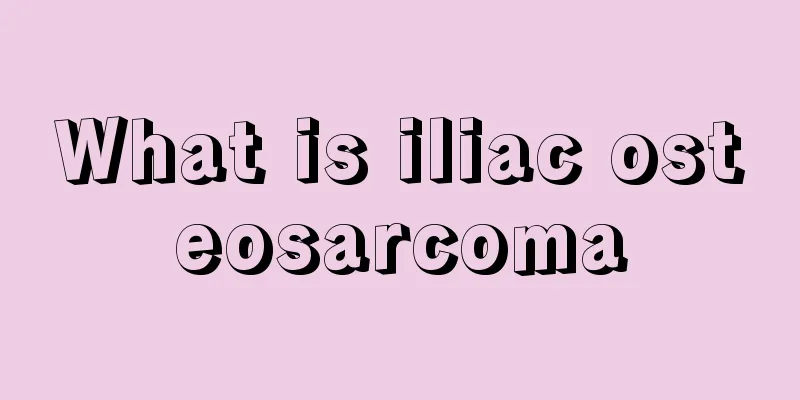What are the symptoms of glioma

|
Every disease causes harm to the human body. The appearance of glioma is an irresistible and serious disease caused to the body. It often occurs in the neuroectoderm. Some tumor patients have epilepsy symptoms. Let's learn about the symptoms of glioma. Symptoms mainly manifest in two aspects. One is increased intracranial pressure and other general symptoms, such as headache, vomiting, vision loss, diplopia, epileptic seizures and mental symptoms. The other is local symptoms caused by the compression, infiltration and destruction of brain tissue by the tumor, resulting in neurological dysfunction. Headaches are mostly caused by increased intracranial pressure. As the tumor grows, the intracranial pressure gradually increases, compressing and pulling on pain-sensitive structures in the brain, such as blood vessels, dura mater, and certain cranial nerves, causing headaches. Most of the headaches are throbbing and distending pains, mostly in the frontal, temporal, or occipital regions. For superficial tumors in one cerebral hemisphere, the headaches may mainly occur on the affected side. The headaches are intermittent at first, mostly occurring in the early morning. As the tumor develops, the headaches gradually worsen and last longer. Vomiting is caused by stimulation of the medullary vomiting center or the vagus nerve, and may be projectile without nausea. In children, the headache may not be obvious due to cranial suture separation, and because posterior cranial fossa tumors are common, vomiting is more prominent. Increased intracranial pressure can cause papilledema, which in turn can lead to secondary atrophy of the optic nerve and decreased vision. Tumors compressing the optic nerve can cause primary optic atrophy, which can also lead to decreased vision. The abducens nerve is easily compressed and pulled, often causing paralysis and double vision. Some tumor patients have epilepsy symptoms, which may be early symptoms. Epilepsy that begins in adulthood is generally symptomatic and is mostly caused by brain tumors. Those who are difficult to control with drugs or whose seizures change in nature should be considered to have brain tumors. Those with tumors adjacent to the cortex are more likely to develop epilepsy, while those with tumors deep inside are less likely to develop epilepsy. Localized epilepsy has localization significance. Some tumors, especially those located in the frontal lobe, may gradually cause psychiatric symptoms such as personality changes, indifference, decreased speech and activity, inattention, memory loss, lack of concern for things, and lack of cleanliness. |
<<: Will tongue cancer kill you if it gets serious?
>>: What are the causes of glioma
Recommend
What to do if taro leaves turn yellow
The leaves of taro are very similar to those of M...
What's wrong with the red spots on the lips
The lips are a part of the human body. The mouth ...
Do electric ear cleaners hurt your ears?
In order to get the dirt out of the ears, people ...
What are the common symptoms of liver cancer? The four most common symptoms of liver cancer
Due to the long-term consumption of the tumor, th...
Five serious misunderstandings about eating eggs in summer
Eggs are a common food in our lives, and eating t...
What is the length of the scar from hemisection of thyroid cancer
After hemisection of thyroid cancer, the length o...
Symptoms of spontaneous healing of femoral head necrosis
Femoral head necrosis is not unfamiliar to many p...
7 small behaviors for health and longevity are better than food therapy
Regardless of ancient or modern times, health pre...
How to quickly eliminate eye bruises? Get it done quickly in three simple steps
We often see this scene in TV dramas: two men dis...
Is the whitening injection useful? Why can the whitening injection whiten the skin?
As long as you don't go out normally, or do a...
How long does it take for thyroid cancer to develop into stage I?
It usually takes 1-2 years for thyroid cancer to ...
Can Chinese medicine be taken on an empty stomach? When to take Chinese medicine
Regardless of whether they are sick or not, many ...
What is the best way to wash underwear?
I believe everyone has their own way of cleaning ...
What are the diagnostic methods for breast cancer
Whether in China or abroad, the incidence of brea...
6 simple and practical hypnosis methods
1. Acupoint hypnosis method: Before going to bed, ...









